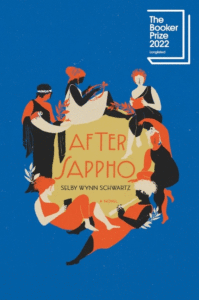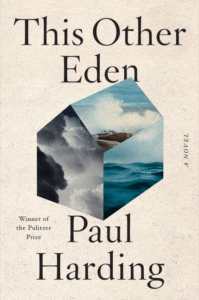What Should You Read Next? Here Are the Best Reviewed Books of the Month
Featuring New Titles by Paul Harding, Janet Malcolm, Bret Easton Ellis, Colm Tóibín, and More

Paul Harding’s This Other Eden, Janet Malcolm’s Still Pictures, Bret Easton Ellis’ The Shards and Colm Tóibín’s A Guest at the Feast all feature among January’s best reviewed books.
Brought to you by Book Marks, Lit Hub’s “Rotten Tomatoes for books.”
*
1. After Sappho by Selby Wynn Schwartz
(Liveright)
8 Rave • 5 Positive • 1 Mixed • 1 Pan
“Wynn Schwartz makes use of a multitude of literary sources, though she rarely quotes directly. Instead she practises a kind of ventriloquism, not quite fictive, and at the same time subverting the genres of biography and literary criticism. Her style might be called hybrid, though the label doesn’t capture the pleasures of its originality or inventiveness … Some reviewers have questioned the ethics of moving so freely between fact and fiction in writing these women’s lives. In an extended biographical note the author describes her fragments as ‘speculative biographies,’ and this feels closest to the truth … It is a quietly radical technique, and not without risk. But Wynn Schwartz pulls it off. How else, these writers ask, to account for the lives of the unaccounted?”
–Harriet Baker (TLS)
2. This Other Eden by Paul Harding
(W. W. Norton & Company)
9 Rave • 1 Mixed
Read an excerpt from The Other Eden here
“Stunning … You could imagine lots of ways a historical novel about this horror might be written, but none of them would give you a sense of the strange spell of This Other Eden—its dynamism, bravado and melancholy. Harding’s style has been called ‘Faulknerian’ and maybe that’s apt, given his penchant for sometimes paragraph-long sentences that collapse past and present … [An] intense wonder of a historical novel.”
–Maureen Corrigan (NPR)
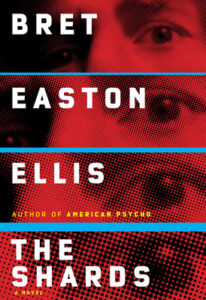
3. The Shards by Bret Easton Ellis
(Knopf)
6 Rave • 8 Positive • 6 Mixed • 3 Pan
“A genuine literary event … Others before Ellis have attempted to retool the serial narrative for the internet age. Nothing has felt quite as thrilling as Ellis’s year-long, hour-by-hour performance of The Shards … Any lingering uncertainty that its brilliance lay more in the recitation than the writing can be dispensed with. The Shards isn’t just Ellis’s strongest novel since the 90s, it’s a full-spectrum triumph, incorporating and subverting everything he’s done before and giving us, if we follow the book’s ingenious, gleefully self-aware conceit, nothing less than the Ellis origin story …
Superficially, The Shards cleaves to Ellis’s well-established aesthetic. The dialogue is deadpan, the atmosphere paranoid and tacitly hostile. Sex is graphic and anhedonic; violence is lurid and sexualised. But beneath the coldness and carnage, a new, gentler quality is detectable … We realise the precision and subtlety of its metatextual structure. The concluding violence is both climax and origination.”
–Sam Byers (The Guardian)
**
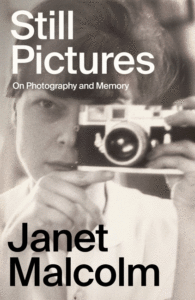
1. Still Pictures: On Photography and Memory by Janet Malcolm
(FSG)
9 Rave • 6 Positive • 2 Mixed
“Superb … How could a writer so famously, effectively skeptical of subjective stories write an autobiography? Malcolm solves the problem with characteristic elegance: Nearly every short chapter of Still Pictures is headed by a grainy black-and-white photograph, whose calls to memory she heeds, repels and bargains with in turn by subtle turn. Her comfort with incompleteness becomes a virtue … Most of this memoir consists of appreciative and often very dryly funny memories of her devoted, literate family … Still Pictures has the clarity and brevity of a book by a writer who knows that time is short, and that there’s much to say, much to convey, which will otherwise be lost forever … A lot gets lost in that transition, Malcolm argues in this final, splendid, most personal work of her long career. A lot—but not everything.”
–Charles Finch (The New York Times Book Review)
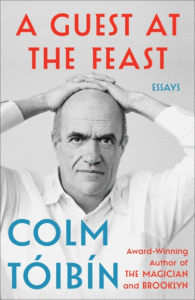
2. A Guest at the Feast by Colm Tóibín
(Scribner)
9 Rave • 5 Positive
“Sumptous … This deceptively slim memoir expands out into something far greater than you might expect. In what amounts to not much more than a long magazine article, he creates a sweeping, lyrical portrait of the small-town idiosyncrasies, natural landscapes and family histories in southeast Ireland on which his novels have drawn for three decades … But fittingly, it’s precisely the details of that provincial world (the setting of so many of his novels) that Toibin conjures up superbly here.”
–Robert Collins (The Times)
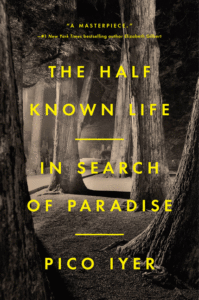
3. The Half Known Life: In Search of Paradise by Pico Iyer
(Riverhead)
9 Rave • 2 Positive • 1 Mixed
Read an excerpt from The Half Known Life here
“In Iyer’s hands, the search for paradise, the way out of the ego, doubles as an internal journey … No stranger to the travel genre, the prolific Iyer is after something more here. His chronicle, which begins with an appreciation of the sophistication, beauty and culture of Iran, becomes a requiem for a world—and an existence—estranged from itself … A lonely, nostalgic and haunted quality emerges as Iyer casually intersperses bits of his personal history. There is a formula to many of the chapters … Empathy is not the only thing going on; Iyer is also looking within. And as he looks, things get dizzier and dizzier.”
–Mark Epstein (The New York Times Book Review)


